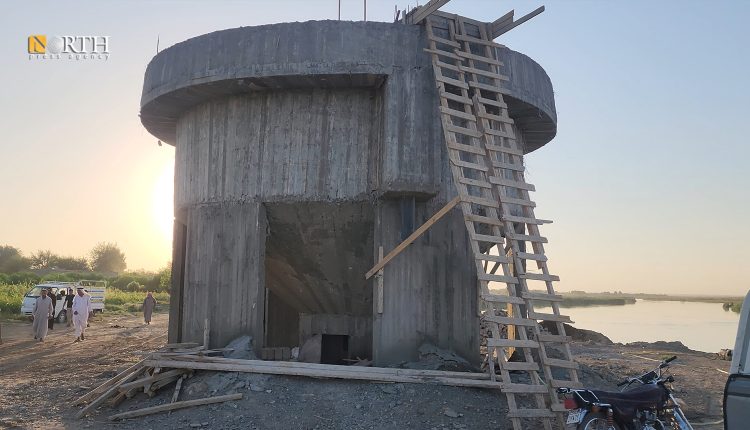DEIR EZ-ZOR, Syria (North Press) – In the village of Zgheir Shamieh in Deir ez-Zor western countryside, eastern Syria, residents have taken matters into their own hands, launching a fully community-funded project to build a drinking water filtration station after more than a decade without safe water.
For years, the village, under Syrian government control, suffered from official neglect after water pumping stations stopped operating in 2011. With no response to repeated appeals, residents were forced to drink untreated water directly from the Euphrates River—a source increasingly polluted and linked to widespread illnesses, including kidney disease, gastrointestinal infections, and skin disorders.
Jassem Khalifa al-Hussein, 40, a resident of the village, told North Press that they had no other choice. They did not drink the water because it was clean, but because they had to.
“Since 2011, water has not reached our area, despite appeals and pleas for help, and despite the illnesses that have spread,” Khalifa said. “No one has responded to our requests or offered an initiative. This is a community-led initiative, an idea born among the villagers so we could rely on ourselves.”
The initiative, supported by contributions from local residents, community leaders, and expatriates, is the first of its kind in the area to be entirely self-funded. The Water Authority in Deir ez-Zor is providing technical oversight, while villagers cover the costs. Construction of the sedimentation basin alone has reached about one billion Syrian pounds (approximately $100,000), with work ongoing and no final budget yet set.
In acts of solidarity, one resident donated the land for the station, while another gave part of his property to open an access road for transporting construction materials. Once completed, the station is expected to provide clean drinking water to around 1,500 homes—serving roughly 7,000 people—and end years of reliance on unsafe sources.
Neighboring villages, such as al-Kharita, face similar shortages. “We depend on the Shumaytiyah Station, but it only supplies water one day a week,” said local resident Abdulkarim al-Shaibi. This forces many to either draw directly from the river or buy costly tanker water—a reality common across much of western Deir ez-Zor’s countryside.
Residents hope their project will inspire similar community-driven initiatives across the region, improving infrastructure and basic services so that local communities are no longer left vulnerable to recurring crises.

